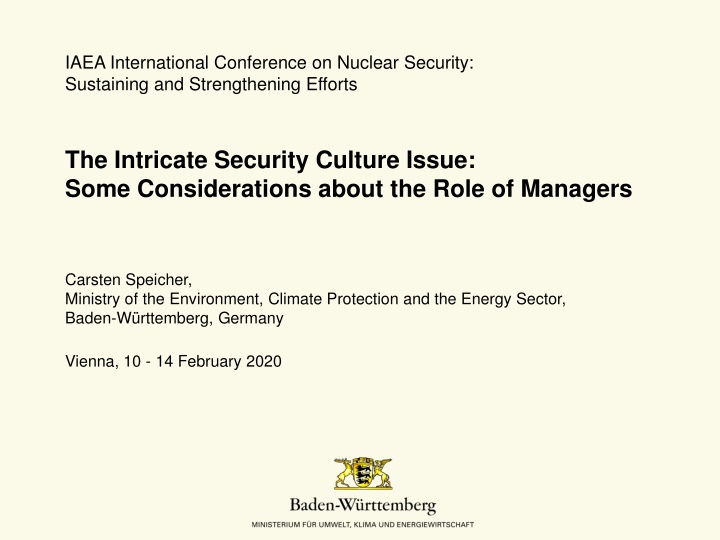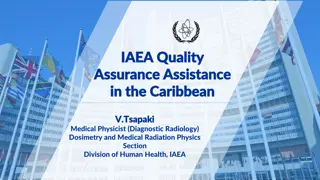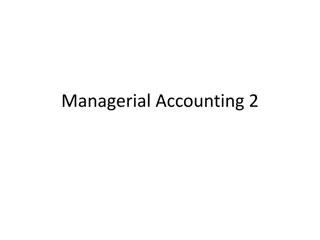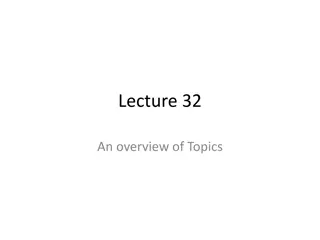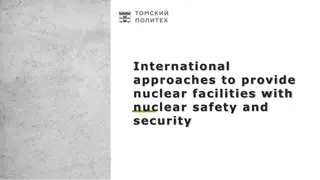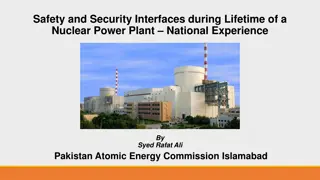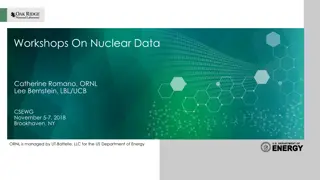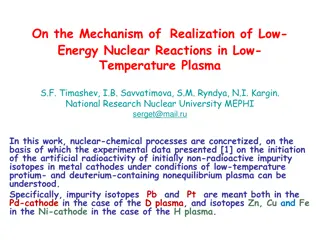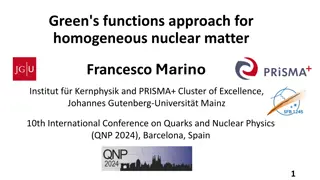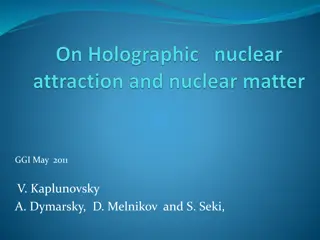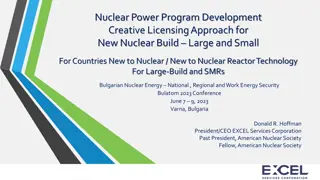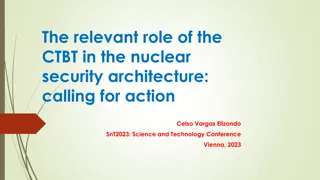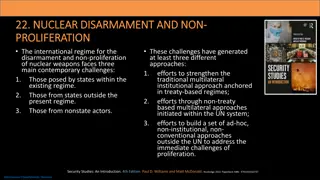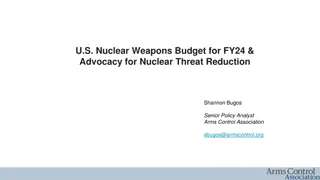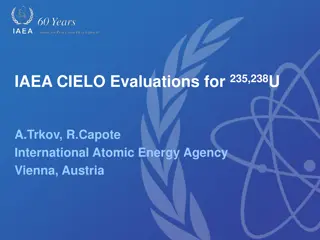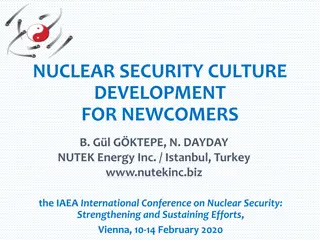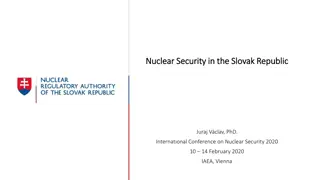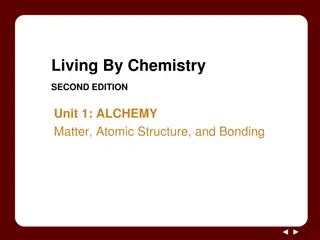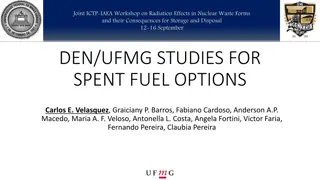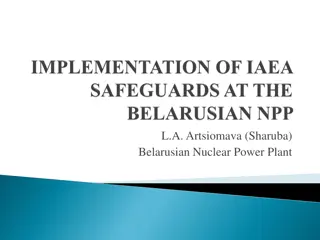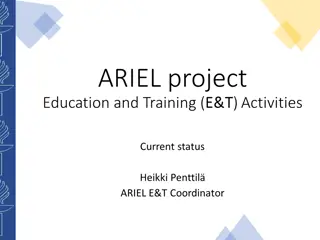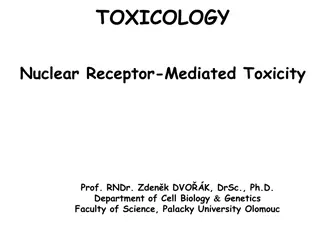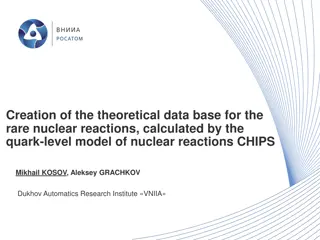Nuclear Security Culture and Managerial Role: Insights from IAEA Conference
Exploring the concept of security culture in nuclear facilities, this presentation by Carsten Speicher at the IAEA International Conference on Nuclear Security delves into the role of managers in fostering a positive security culture. It discusses the risks posed by radiological terrorists and the potential economic impacts of radiological attacks, highlighting indicators of inadequate security measures.
Download Presentation

Please find below an Image/Link to download the presentation.
The content on the website is provided AS IS for your information and personal use only. It may not be sold, licensed, or shared on other websites without obtaining consent from the author.If you encounter any issues during the download, it is possible that the publisher has removed the file from their server.
You are allowed to download the files provided on this website for personal or commercial use, subject to the condition that they are used lawfully. All files are the property of their respective owners.
The content on the website is provided AS IS for your information and personal use only. It may not be sold, licensed, or shared on other websites without obtaining consent from the author.
E N D
Presentation Transcript
IAEA International Conference on Nuclear Security: Sustaining and Strengthening Efforts The Intricate Security Culture Issue: Some Considerations about the Role of Managers Carsten Speicher, Ministry of the Environment, Climate Protection and the Energy Sector, Baden-W rttemberg, Germany Vienna, 10 - 14 February 2020
Talking points security culture, what is it and what is it good for? some considerations about managers and their role what can be done to foster a positive culture Folie 2
4 Radiological Terrorists what are they up to Radiological dispersal device (RDD) disperses radioactive material into the environment, resulting in radioactive contamination. Radiation emission device (RED) utilizes a radioactive source to expose potential victims to radiation. Nuclear plant infrastructure and particularly spent fuel pools, if intentionally damaged, can release radiation, contaminating the immediate surroundings or beyond. Improvised nuclear device (IND) is built from components of a stolen weapon or from scratch using nuclear material that could produce nuclear explosions and/or radioactive contamination.
5 Radiological Terrorists what may they look for Cesium-137 Chloride Strontium-90 Americium-242 Source Cobalt-60 Pencils Iridium-192 Seeds Californium-252 Sources Source: CITS, USA
6 Damage: Cost Estimate Total economic loss from the act of terrorism against the World Trade Center in 2001 Over 190 billion US$ Cost to the British economy of the July 2005 bombing of the London metro system Between 4 and 6 billion US$ Estimate of potential ensured losses from a medium size radiological attack in Washington DC About 107 billion US$ Source: American Academy of Actuaries quoted from CITS/USA
Some indicators for bad patterns of behaviour Unskilled and/or unaware staff, e.g. guards Lame (weak) managers (Peter Principle?) Failing technology (too complex or not sophisticated enough, KISS principle or complexity is the enemy of security ) Unmotivated staff (mushroom-/crocodile-management?) Complacent management (Dunning-Kruger-Effect?) Poor external or internal working conditions ( bad luck really?) Folie 7
Is it good enough to have a well structured management system? Folie 8
Helmreichs error pyramid Folie 11
easy to see: behaviours habits appearance 10% 90% difficult to see: values priorities assumptions beliefs expectations our national experience: the cultural iceberg most of the observed and analysed security related events (also low-level) are highly influenced by weak spots of the security culture in pratice!: Folie 12
Guiding questions for any manager (I) How do I guarantee to be regularly and often approachable for my staff? How do I take responsibility for the needs of my staff? How can I make sure to visibly act as role model when it comes to security related issues (and e.g. not claiming special rights and exceptions for myself)? What can I do to clearly and regularly communicate the security goals of our company to the staff? How do I contribute to improve the motivation of the staff? How do I make decisions in practice and do I properly explain them to the staff? Folie 13
Guiding questions for any manager (II) How do I use authority and if so, every time if necessary and or just limited to sanction the staff? How can I clearly communicate the red line problem (the absolute no-go for our company when it comes to security related misbehaviour) and the obligatory consequences if crossing or violating this line? Do I regularly perform walkthroughs, make them visible for the staff and document them in a careful and respectful manner? How do I motivate and actively support the (self-)assessment of our own security culture? How do I contribute to implement the resulting action plan and monitor its progress? Folie 14
The ultimate goal! Folie 15
Thank you for your attention! Organizational culture means to the organization the same thing as the oil in the gearbox: It supports the long-term effectiveness and functionality Any questions? Please contact: Carsten Speicher carsten.speicher@um.bwl.de Tel.:+49-711-1262613 (A. Hagemann, former member of the German TSO GRS ) ...and I d like to add: Look at the oilcan at times and the state of its content is the duty of and the task for every regulator! Folie 16
